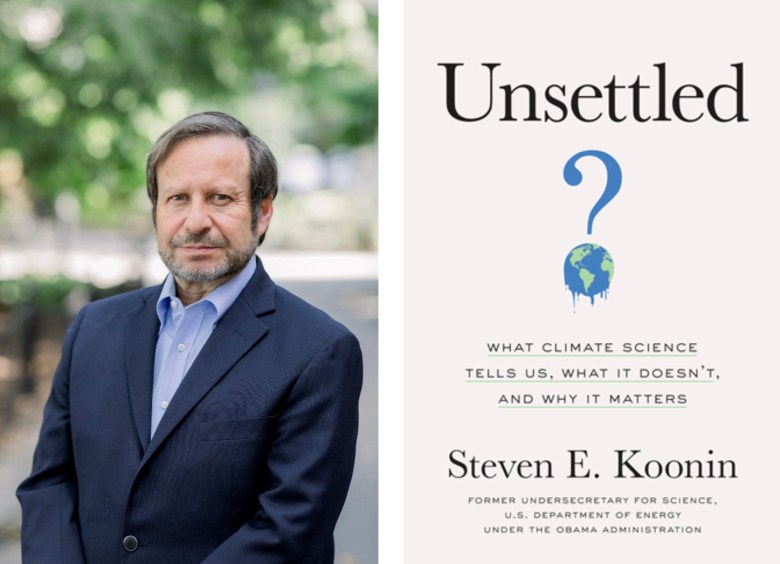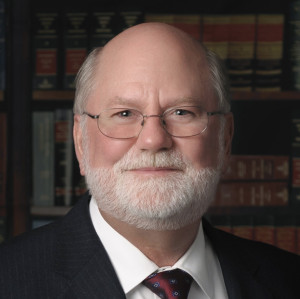
By Andy May
The Wall Street Journal (WSJ) published a review of Steven Koonin’s new book Unsettled on April 25, a little over a week before it went on sale. A blog called “Climate Feedback” published a “Fact Check” of the book review on May 3rd, the day before the book came out. This so-called fact check was used by Facebook to attempt to discredit the WSJ review and the book itself whenever a post linked to the book review.
The Wall Street Journal Editorial Board objected to this practice with a strongly worded editorial. They pointed out the so-called “fact check” was not checking anything, but simply arguing against Koonin’s analysis. Arguing with Koonin is fine, arguing is an important part of science, but don’t call it a fact check. The “fact check” blog post doesn’t contradict or challenge anything in Koonin’s book. Koonin provides a rebuttal in today’s WSJ here.
Koonin’s more detailed point-by-point rebuttal of the fact check is here.
I noticed on Saturday, when I searched for Koonin’s book on Amazon.com using search text, like “Steven Koonin Unsettled,” that I was led to books critical of Koonin’s book, but not to his book. Amazon appeared to have “canceled” a best seller. Later the same day, searches on Amazon began to work properly again, hopefully it was a simple programming error and not attempted suppression by a rogue employee.
You can get to his book on Amazon.com at this link, if searches fail again. The book can also be found on BarnesandNoble.com. Both purchases will have be eBooks, the print edition is sold out, probably until June. Koonin’s book is now on two of WSJ’s best seller lists.
We have dealt with fraudulent fact checks and fake news before, they are plentiful. See here and here. We have also seen blatant lying about climate science debate on the internet by otherwise respectable organizations, like Intelligence Squared (IQ2US), see here. In this case the record shows that the climate skeptics, Michael Crichton, Richard Lindzen, and Phillip Stott won a public climate change debate in New York decisively. Their opponents were Brenda Ekwurzel, Gavin Schmidt, and Richard Somerville. The correct results remained on the website for ten years after the 2007 debate, yet someone in IQ2US changed the clear and well documented results sometime after 2017, according to the Wayback Machine. Now the IQ2US website says the opposite, they say the climate alarmists won. Shameful, but true. We notified them of their erroneous reporting in December, but the wildly incorrect results were still on their website, months later, on May 15, 2021. It is probably still there.
The news media and our institutions can no longer be trusted. Their fact checks cite a statement, say it is false, then subtly change it to a truly false statement and refute that. Then they claim to have refuted the original. For example, Koonin and the review say: “Greenland’s ice sheet isn’t shrinking any more rapidly today than it was eighty years ago.” This is true, Greenland was melting at a very rapid pace in 1940, much faster than today. Yet, Twila Moon’s “refutation” claims that Greenland lost more mass from 2003 to 2010 than it did from 1900 to 2003, which may be true, but it is not what Koonin wrote. Further, much of the period from 1900 to 2003, Greenland was gaining, not losing ice. Further cherry-picking a seven-year period is not relevant climatologically.
Frederikse, et al., clearly show that melting glaciers in Greenland were a major contributor to sea level rise from the late 1930s to the mid 1940s, but were a minor influence in the last few decades. Overall, the rate of sea level rise recently, is quite comparable to the rate seen in the late 1930s to the mid 1940s. This deceptive sort of “refutation” is used throughout the “fact check” and Koonin picks them all apart in his detailed post. This is the modus operandi of today’s fact checkers, beware of them.

Andy May, now retired, was a petrophysicist for 42 years. He has worked on oil, gas and CO2 fields in the USA, Argentina, Brazil, Indonesia, Thailand, China, UK North Sea, Canada, Mexico, Venezuela and Russia. He specializes in fractured reservoirs, wireline and core image interpretation and capillary pressure analysis, besides conventional log analysis. He is proficient in Terrastation, Geolog and Powerlog software. His full resume can be found on linkedin or here: AndyMay
